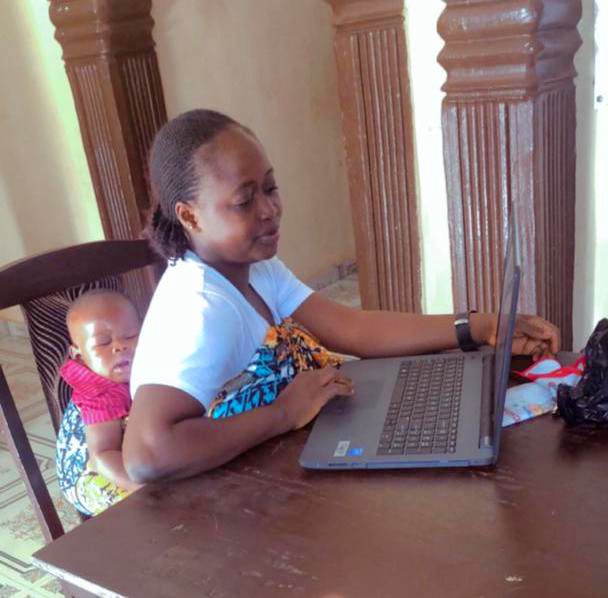A letter from Isata, Sierra Leone
Dear Colleagues women everywhere,
On this special day of recognition and solidarity, International Women’s Day, I am honoured to join you. I raise my voice to say, “YES! We celebrate our strength and courage together as women.”
I am a victim of digital technology illiteracy. When I shared my experience with others, I learned I am not the only woman who does not have technology experience. My strength grew in knowing it is possible. This I learned when I joined EducAid, and also a meeting of a philanthropist, Ann Beatty, who means everything to me as a friend and colleague. We are sisters, and family, we are kindred spirits. It does not matter where we live in this world. It does not matter if our religious and faith practices are the same or different. It does not matter that our ages cross the span of a lifetime from child to elder. It does not matter what our social and economic status is determined. We are women! We will continue to work together to make the changes needed, by sharing our stories and opening closed doors.
On this International Women’s Day, March 8, 2023, I am delighted to celebrate this year’s International Women’s Day with you in recognition of women and girls championing the advancement of transformative digital technology.
This year’s theme, “DigitALL: Innovation and technology for gender equality,” highlights the role of innovative technology in promoting gender equality and meeting the health and developmental needs of women and girls.
Together we are Stronger.
With love and determination, I am Always Your Sister!
Isata...xxx

Despite evidence globally demonstrating how crucial girls’ education is to sustainable development, gender disparities in education still persist.
Around the world, 129 million girls are out of school, including 32 million of primary school age, 30 million of lower-secondary school age, and 67 million of upper-secondary school age. (UNESCO).
Only 49% of countries have achieved gender parity in primary education. At the secondary level, the gap widens: 42% of countries have achieved gender parity in lower secondary education, and 24% in upper secondary education.
The reasons are many. Barriers to girls’ education, such as families favouring boys to be educated when money is tight, and gender-based violence, and basic human bodily functions like girls starting their periods. There are many different reasons across countries and communities.
Many schools do not meet the safety, hygiene or sanitation needs of girls. In others, teaching practices are not gender-responsive and result in gender gaps in learning and skills development.
As a mother herself, Isata is determined that she will strive to ensure the next generation will be educated.
Isata and Ann are continuing their journey together to achieve equality, equity and solidarity by being part of the Foundation.
Here you can read about some of the work we do to ensure girls’ have access to education.
https://www.stevesinnottfoundation.org.uk/how-far-would-you-walk-to-school-each-day




